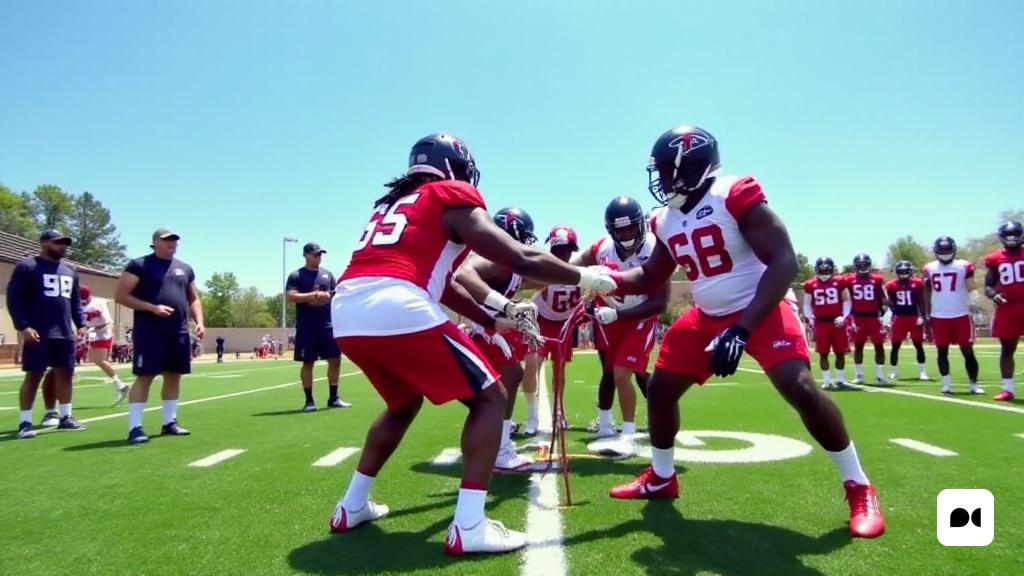A New Era Under Ulbrich
The Atlanta Falcons are entering a transformative phase in their defensive strategy, spearheaded by the new defensive coordinator, Jeff Ulbrich. Unlike past seasons where the focus was predominantly on stopping the run, Ulbrich is steering the team towards a more balanced yet pass-centric approach, reflecting a broader trend in the NFL.
Personnel Changes and Tactical Implications
The Falcons’ roster has seen significant changes, especially in the defensive line. With only a couple of players exceeding 300 pounds, questions arise about the effectiveness of their run defense. The acquisitions of Kentavius Street and David Onyemata add some heft, but the team appears to be prioritizing speed and agility in its defensive formations.
The Shift Towards Pass Defense
Ulbrich has noted a considerable shift in focus; he now dedicates over half of his preparation time to countering the passing game. This evolution in philosophy underscores a critical aspect of modern football, where stopping the pass is increasingly seen as paramount to defensive success.
Formation Strategies and Weight Concerns
With the Falcons likely adopting a 3-4 base defense, the implications for player deployment are substantial. The new personnel includes lighter edge rushers, raising concerns about their ability to effectively defend against the run. The transition from a heavier 4-3 setup under previous coaching staff reflects Ulbrich’s desire for flexibility and unpredictability in defensive schemes.
The Importance of Depth in the Roster
As the Falcons emphasize an aggressive pass rush, depth becomes crucial. New defensive line coach Nate Ollie emphasizes the need for a rotation of players to maintain high energy levels throughout games. This strategy could potentially mitigate the risks associated with lighter defensive formations.
Potential Breakout Players
Athletic talents like Kyle Pitts and Troy Andersen are under scrutiny as they aim to make significant impacts this season. While Pitts has shown flashes of brilliance, his consistency remains a concern. Andersen’s health will also play a pivotal role in his contribution to the team.
Future Prospects and Offensive Infrastructure
Looking ahead, the Falcons appear to have a solid offensive foundation, led by quarterback Michael Penix Jr. With a mix of established receivers and a strong offensive line, there is cautious optimism about the team’s potential for the upcoming season. However, the absence of additional weapons in the offseason raises questions about their long-term offensive strategy.
Quarterback Dynamics
The quarterback situation remains a focal point, with Penix’s development and performance crucial to the team’s success. The presence of veteran Kirk Cousins adds an interesting dynamic, as the coaching staff weighs the implications of potentially returning to a more experienced quarterback if necessary.
A New Dawn for the Falcons
As the Falcons look to redefine their identity, the blend of youthful exuberance and seasoned experience could provide the right mix for a successful campaign. The emphasis on adaptability and strategic innovation under Ulbrich’s leadership may not only reshape the defense but also reinvigorate the entire franchise.

